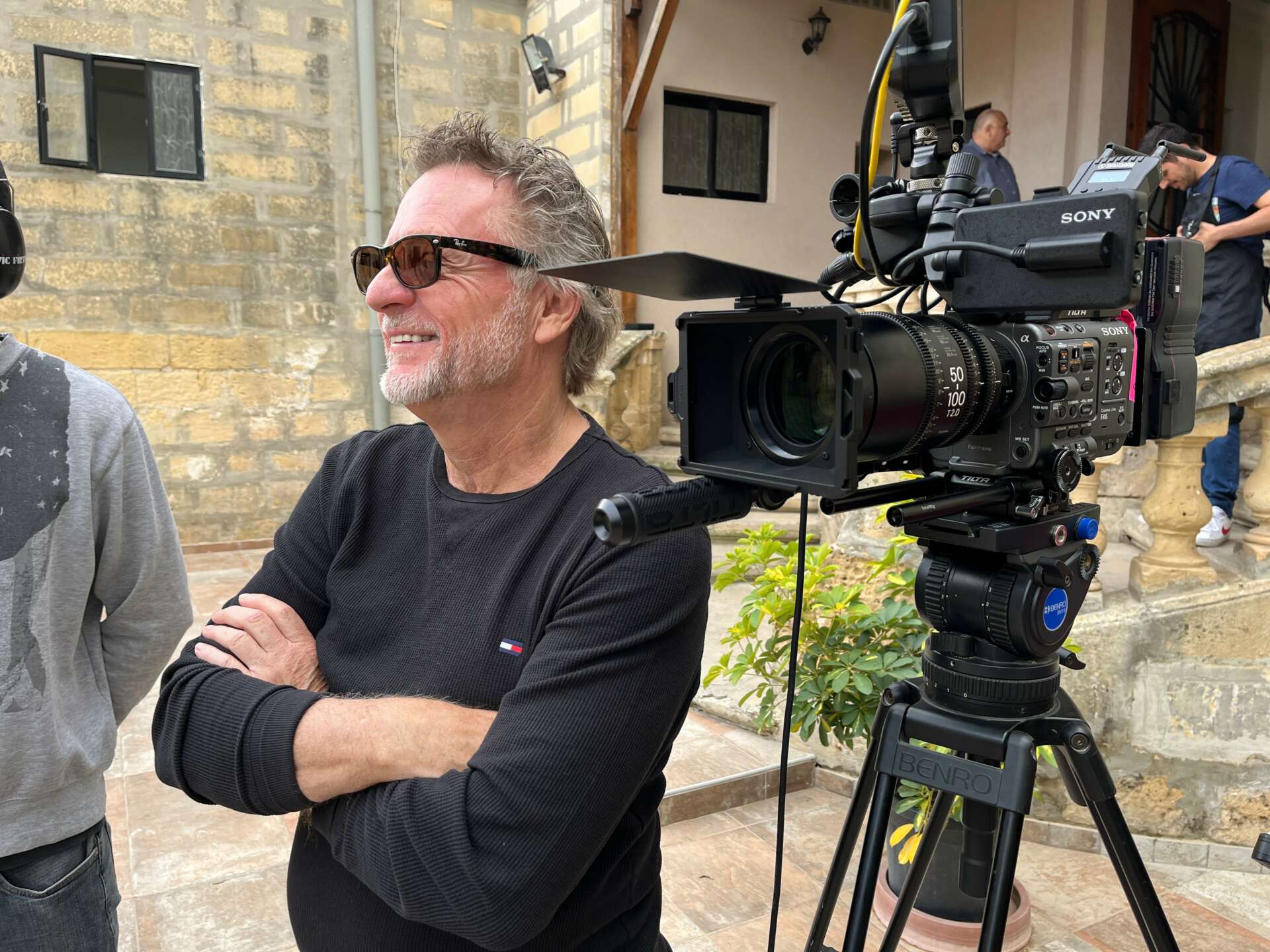We caught up with the brilliant and insightful Phil Cooke a few weeks ago and have shared our conversation below.
Phil, thanks for joining us, excited to have you contributing your stories and insights. Let’s kick things off with your mission – what is it and what’s the story behind why it’s your mission?
My great passion right now is helping leaders be more creative, as well as be more effective leading creative teams. Business Week Magazine stated that “According to a new survey of 1,500 chief executives conducted by IBM’s Institute for Business Value, CEOs identify ‘creativity’ as the most important leadership competency for the successful enterprise of the future.” Talk to many leaders I’ve worked with over the years about the most important leadership competency, and you’ll usually hear about financial expertise, organizational skill, or motivational ability. But the truth is – especially during this disruptive economy today, creativity is more and more in demand. And remember – we’re all born creative. Just show me a little kid who isn’t creative. But somewhere around school-age, for most people those creative instincts start to recede.
If you’re a leader, it’s time to tap into your creative side once again. Management expertise, financial acumen, vision – all those things are important, but to answer the challenges we face today, creativity is becoming more and more valuable (read: critical.)
We live in a design driven culture, where technology is shifting the traditional rules of doing business. New times demand new approaches, and the creative leader will be the one who refuses to get stuck in old thinking, will challenge the status quo, and never defend bad ideas with lines like, “Well, that’s the way we’ve always done it.”
The question for leaders is: What are you doing today to be the creative force you need to be for tomorrow?
Phil, love having you share your insights with us. Before we ask you more questions, maybe you can take a moment to introduce yourself to our readers who might have missed our earlier conversations?
I lead a creative media team that works at the intersection of faith, media, and culture. Our client list has included studios and networks like Walt Disney, Dreamworks, and USA Network, as well as major religious organizations from Voice of the Martyrs, The Museum of the Bible, The Salvation Army, The YouVersion Bible app, to many of the most respected churches in the country.
Over my career, I’ve produced TV and film programming in more than 60 countries around the world, and in the process, been shot at, survived two military coups, fallen out of a helicopter, and in Africa, been threatened with prison. And during that time – through our company Cooke Media Group in Los Angeles, California – helped some of the largest Christian and nonprofit organizations in the world use the media to tell their story in a changing, disrupted culture.
A recent documentary was on the “Nativity Cribs of Malta” for Museum of the Bible in Washington, DC, as well as “Inexplicable: The Rise of Christianity in Asia.” We also produced of “The Insanity of God” a feature documentary that premiered nationally as a Fathom Event.
According to former CNN journalist Paula Zahn, as a working producer in Hollywood with a Ph.D. in Theology I’m pretty rare. I’ve appeared on NBC, MSNBC, CNBC, CNN, Fox News, and my work has been profiled in The New York Times, the Los Angeles Times, and The Wall Street Journal.
My book “One Big Thing: Discovering What You Were Born to Do” helps you find the great purpose and calling for your life – and was named by the Washington Post as one of the Top Five Business Books for 2012. My book, “Unique: Telling Your Story in the Age of Brands and Social Media” was written to change the way churches, ministries, and nonprofits engage today’s culture with their story.
Co-written with Jonathan Bock, “The Way Back: How Christians Blew Our Credibility and How We Win it Back” takes a hard look at why today—particularly in the media—Christians are dismissed as irrelevant. Our goal was to show the Christian community how we can once again astonish our critics, and in doing so, completely transform the world for good.
My most recent books are “Maximize Your Influence: How to Make Digital Media Work for Your Church, Your Ministry, and You” and “Ideas on a Deadline: How to Be Creative When the Clock is Ticking.”
How do you keep your team’s morale high?
There’s a million books, websites, and conferences out there on how to be a great leader. But when it comes to leading and inspiring creative people, things start to thin out a bit. When dealing with creative teams, some leaders feel the need to be experts in the area they lead, others are convinced that holding high standards is the secret, and still others think organizational expertise is the key.
But when it comes to leading great creative teams, let me share a little advice from one of the best: Walt Disney. This quote ran in National Geographic in 1963 in a story called “The Magic Worlds of Walt Disney” –
“You know, I was stumped one day when a little boy asked, “Do you draw Mickey Mouse?” I had to admit I do not draw any more. “Then you think up all the jokes and ideas?” “No,” I said. “I don’t do that.” Finally, he looked at me an said, “Mr. Disney, just what do you do?”
“Well,” I said, “sometimes I think of myself as a little bee. I go from one area of the studio to another and gather pollen and sort of stimulate everybody.” I guess that’s the job I do. I certainly don’t consider myself a businessman, and I never did believe I was worth anything as an artist.”
Your #1 job as a leader of creative people is to inspire. Never forget that. It’s not your job to design the logo, shoot the video, write the script, compose the music or micromanage.
It’s your job to make everyone better at theirs.
Do you think there is something that non-creatives might struggle to understand about your journey as a creative? Maybe you can shed some light?
Research indicates that everyone is born with the potential to be creative. But to have creative ideas when you need them requires the ironic combination of humility and confidence. Humility matters because, in my experience, one of the greatest threats to creative professionals is pride. It’s why so few artists and creatives can survive a long career. At some point, they start taking creativity for granted, and like a romantic relationship, things start to sour.
On the other hand, without confidence, we won’t get very far—but confidence is hard to build in the creative world. You can’t imagine the number of leaders I find who have lost that confidence. They’ve stopped asking questions about their purpose, their process, or their results. “We’ve always done it that way,” has become a mantra for far too many leaders who have stopped questioning.
Let’s face it—creativity is hard.
So the question is—where are you right now? At what point did you get bought off with a raise? At what point did you give up? And perhaps, more importantly, what are you willing to do to break out of those walls?
Become the expert in your field. Read, study, be proactive in your career. Don’t get stuck focusing on your past experience. Focus on your leadership potential—the kind of creative leader you see yourself becoming. Studies show that interviewers are drawn to candidates described as having potential (often more than actual achievement).
The truth is the world needs more creative thinking in every area of life. We need more creative teachers, real estate agents, sales professionals, pastors, insurance executives, and office managers. We need more creative parents and grandparents. We need more creative minds in government, business, science, and the nonprofit world. In short, everyone could stand a creative overhaul—understanding a new way to do things that brings better results.
To start building your creative confidence, start asking questions. Don’t be afraid to try the harebrained ideas. You don’t have to be the obstinate employee on the team or the grumpy friend, but you can start looking at other ways to make things happen.
Perhaps it’s because I’ve been doing it so long, I can’t stand to drive the same routes to work, the airport, the grocery store, or a friend’s house. It drives my family crazy, but I want to see what would happen if we took another path.
Little ideas like that can start you on the road to looking at life in different ways. 
Contact Info:
- Website: https://www.philcooke.com
- Instagram: https://www.instagram.com/philcooke/
- Facebook: https://www.facebook.com/philcookepage/
- Linkedin: https://www.linkedin.com/in/philcookepage/
- Twitter: @PhilCooke
- Youtube: https://www.youtube.com/@PhilCookeOfficial
- Other: My podcast (The Phil Cooke Podcast) is available on all podcasting platforms as well as my YouTube channel.


